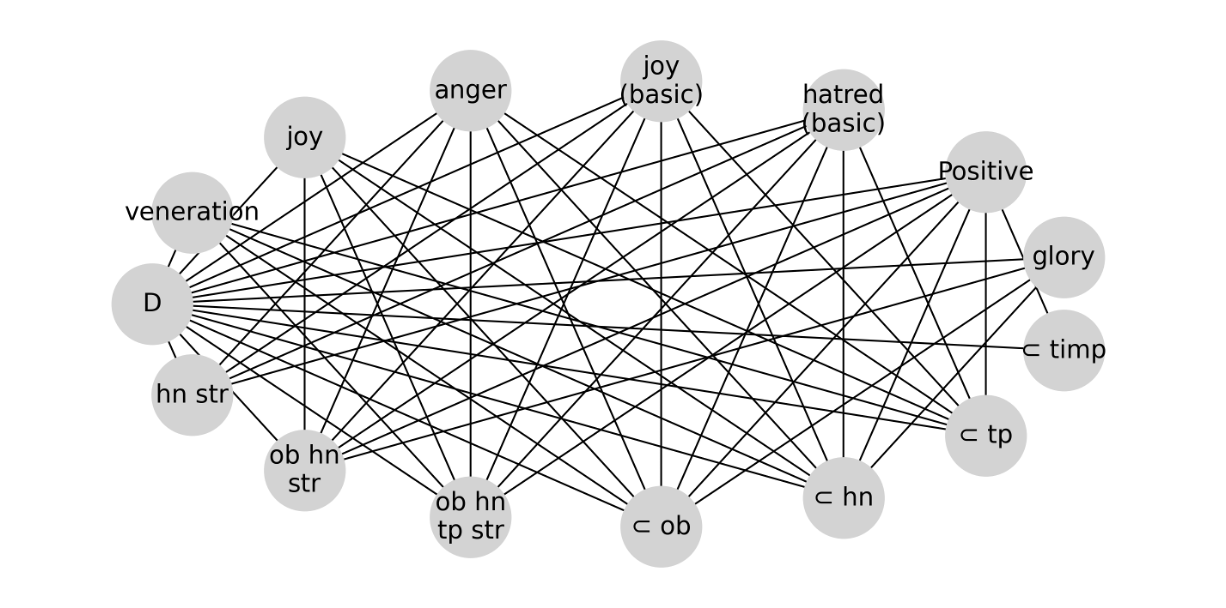Job Vacancy: Postdoctoral Researcher Musical Data Science

The DIDONE project, funded by an ERC Advanced Grant (2019-2024), was a groundbreaking research initiative focused on understanding the expression of emotions in 18th-century opera seria. This collaborative project brought together researchers from the Instituto Complutense de Ciencias Musicales (ICCMU), the Universidad Complutense de Madrid (UCM), and the Universidad Carlos III de Madrid (UC3M), under the leadership of Prof. Dr. Álvaro Torrente Sánchez-Guisande.
Project Aims
DIDONE’s core objectives are:
- Uncover Compositional Techniques: To determine the compositional techniques employed to express emotions in 18th-century opera seria.
- Develop Quantitative Tools: To create a set of innovative quantitative tools applicable to our repertoire and other musical genres.
- Build a Digital Corpus: To compile a comprehensive digital corpus of approximately 3,000 arias.
The Role: Postdoctoral Researcher in Musical Data Science
We are seeking a highly motivated and talented postdoctoral researcher to join our team and contribute to aims (1) and (2). As a key member of the DIDONE project, you will:
- Conduct cutting-edge research: Engage in high-impact research at the intersection of data/computer science and musicology, producing publications in top-tier journals and conferences.
- Enhance computational tools: Improve and expand existing computational tools within the project, utilizing your skills in MusicXML and Python.
- Analyse a unique dataset: Leverage our curated dataset of approximately 2,600 newly digitized arias (in expansion), applying advanced data analysis and statistical modelling techniques.
- Collaborate with an interdisciplinary team: Work closely with DIDONE’s music theorist, senior statistician, and software developer, contributing your expertise to a dynamic and collaborative environment.
This position is funded through the Didone FEI (Fondo Específico de Investigación), after the completion of the project.
Candidate Profile
- PhD in Computer Science, Statistics, Data Science, or a related field.
- Strong publication record in reputable journals or conferences within the above fields.
- Proven expertise in data analysis and statistical modelling or machine learning.
- Advanced musical knowledge (e.g., music theory, harmony, counterpoint).
- Experience in software development with Python.
- Knowledge of MusicXML or a demonstrated ability to acquire it rapidly.
- Excellent communication and collaboration skills.
- Ability to thrive in an interdisciplinary research environment.
We Offer
- Contract: part-time (50%) 1-year duration, with potential for extension in duration and/or dedication.
- Salary: Gross annual salary €30,000 for full position (€15,000 for 50%). The salary will be paid in 12 instalments with prorated bonus payments.
- Funding Opportunities: Contract extension or full dedication upon successful acquisition of funding in future competitive calls.
- Dynamic Research Environment: Work with a young, ambitious, and interdisciplinary team of experts in musicology, statistics, and computer science.
- Unique Dataset: Access to a unique, curated dataset of approximately 2,600 newly digitized arias (constantly expanding).
Job Details
- Start Date: January 20, 2025 or as soon as possible after that date.
- Working Hours: Part time (18.75 hours per week).
- Work Arrangement: A combination of in-person and remote work is possible.
- Location: UCM, Calle de Donoso Cortés 63, Madrid, Spain.
Application Process
- Submission: Interested candidates should submit a CV, a list of publications, a motivation letter (outlining research interests and relevant experience), and at least one professional reference letter to: didone@iccmu.es.
- Deadline: Friday, January 10, 2025 (23:59 ECT)
- Interviews (if necessary): January 13-17, 2025
ICCMU and the DIDONE project value diversity and are committed to creating an inclusive environment for all employees. We encourage applications from individuals of all backgrounds, including but not limited to race, ethnicity, gender, sexual orientation, age, and disability.